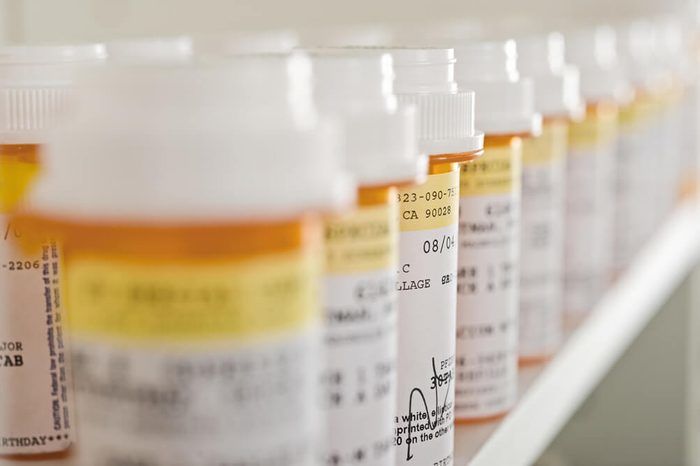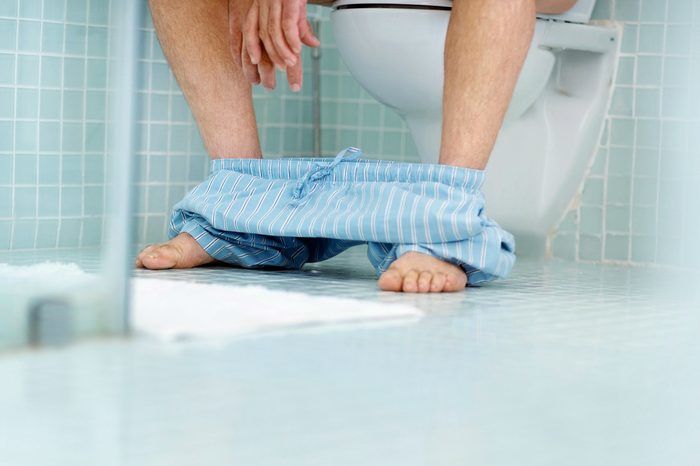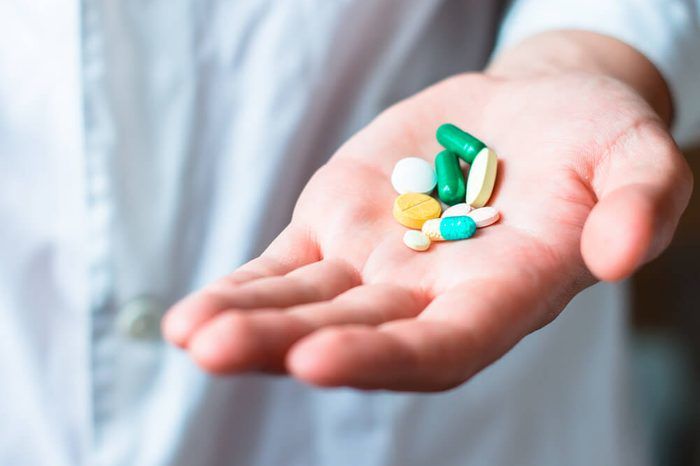
12 Things Your Doctor Might Not Tell You About Pain Medication
What you need to know about pain medication
At one point or another, you may have taken painkillers to treat short-term pain, such as surgery or childbirth. Depending on the severity of pain, your doctor may have suggested non-opioid options like ibuprofen. For severe and chronic pain, you may have been prescribed opioids like oxycodone.
According to the Government of Canada, there were more than 14,700 opioid-related deaths in Canada between January 2016 and September 2019. If you are prescribed opioids, it’s important to understand both the side effects and risks of taking these pain meds. It’s best to reduce your exposure to prescription opioids if the risks outweigh the benefits when it comes to pain management.
However, if your doctor believes painkillers are the best course of treatment for you, here are a few things you should know.
Pain meds won’t “cure” your pain
“Sometimes people expect to be totally pain-free, but that’s not our goal,” says M. Fahad Khan, MD, who specializes in pain management at NYU Langone’s Center for the Study and Treatment of Pain. Rather, the goal is long-term management and improved functionality “so you can go to work, cook for yourself, take care of your home responsibilities, have meaningful relationships,” Dr. Khan explains. “In most doctors’ minds, the pain control is almost secondary.”
Pain meds are just one part of your total pain management strategy
Dr. Khan says there are five main classes of treatment for chronic pain, ranging from most to least invasive: Surgery, injection therapy, pharmacology (opioids and non-opioids), physical modalities (physical therapy, exercise, heating pads, ice packs, massage therapy), and complementary and alternative meds (acupuncture, biofeedback, mind-body therapies, energy healing, herbal supplements, etc.). “There are a ton of different treatments and the best doctors will work with you to create a personalized plan using all of these modalities,” he notes.
You can develop dependence to opioid drugs
Even if you take your meds as instructed, you can develop a physical dependence in which your body requires more to achieve a certain effect (known as tolerance) and you experience physical or mental withdrawal symptoms once the medication is stopped. Developing a dependence is different than addiction, however: “Addiction is when your need for the drug starts affecting your daily life and social responsibilities,” Dr. Khan explains. (Keep in mind, these are the best anti-inflammatory foods for reducing pain.)
You need to be honest about your family and medical history
If you have a family history of drug addiction or a history of alcoholism, anxiety, depression, or loneliness, you may be at an increased risk of developing an addiction to painkillers. “Patients should be honest with their doctors; a good doctor is not judging their patient, but rather is carefully trying to balance risks and benefits of treating a complex and challenging condition,” says Vasudev C. Mandyam, MD, general internist at Beth Israel Deaconess Medical Center and instructor at Harvard Medical School.
You’ll likely be constipated
One of the more common side effects of prescription painkillers is constipation. “If you’re taking opioids, you’ll want to increase your fibre intake and make sure you’re drinking a lot of water,” says Dr. Khan. Other unpleasant side effects may include nausea, itchiness or rash, and sedation or a sluggish mental state. (These are secrets your pharmacist isn’t telling you.)
Booze, opioids, and benzos don’t mix
You might not think twice about that nightly beer or glass of wine, but when you take pain meds you should really consider yourself a teetotaler. Opioids, alcohol, and benzodiazepines (like Xanax, Klonopin, Valium, and Ativan) all affect the central nervous system, which can make you fuzzy-headed and even suppress breathing. When combined, you’re much more impaired and the mix can be deadly. If you binge drink (defined as five or more drinks at one time for a man, or four or more drinks at one time for a woman), you also have a higher risk of becoming addicted to painkillers, Dr. Khan notes.
Never take a leftover pill from an old prescription
When used repeatedly, opioid drugs can induce tolerance so your doctor may have prescribed a higher dosage to get the same initial effect. But once you stop your meds, you’re back to square one. So if you’re done with your prescription and months later you pop a pain pill for a pulled muscle, you could accidentally overdose on your own prescription. (Be sure to ask these questions before you take prescription medications.)
You need to store and dispose of pills properly
When prescribed pain meds, it’s your responsibility to store them properly. “The number-one place where teens get exposure to opioids is their grandmother’s medicine cabinet,” Dr. Khan says. Consider investing in a lock box and, if you have any unused pills, dispose of them safely. Many towns sponsor prescription-pill drop-offs. Check with your local police, sanitation department, and pharmacies.
Watch yourself for these warning signs of abuse
Do you watch the clock as you eagerly wait for your next dose? Are you getting in more arguments with your spouse or coworkers? Do you have trouble sleeping? Have you called in early for refills? These are red flags and prompt an immediate call to your healthcare professional. Dr. Khan suggests following up with your doctor every four weeks so he/she can monitor how the drugs are impacting your overall health, including your everyday functioning (work, school, family relationships, sleep, diet, mood, etc.) Adds Dr. Mandyam: “Using pain meds requires much more than quickly writing a prescription; there’s a lot of counselling and care coordination, and patients should be encouraged to be engaged.”
You’ll need to monitor your over-the-counter meds
Most of us don’t think of Tylenol (acetaminophen) as a harmful drug, but when taken in high doses (more than 3,000 milligrams per day), acetaminophen can be extremely toxic to the liver. So what does this have to do with opioids? Many pain pills also contain acetaminophen-and if you mix these drugs, you run the risk of irreversible liver damage. “You can’t be too careful,” Dr. Khan says. (Also, these common medications can contribute to weight gain.)
Long-term use has its share of risks
Opioid pain meds (like Vicodin and OxyContin) for chronic pain can be highly effective, but they can also be highly addictive. According to the American Society of Anesthesiologists, long-term use of opioids, when used to treat chronic pain, can increase the risk of addiction. Furthermore, though preliminary, researchers are exploring a link between chronic use and your hormonal balance, Dr. Khan adds. For women this may influence menopause or menstrual cycles; for men, this could lead to fertility issues.
Naloxone kits are available
The jury is still out to whether prescriptions to naloxone kits, used to reverse opioid overdose, should be dolled out with your pain medication prescription. “We’re struggling with this question,” Dr. Khan admits. “If a patient is so high risk that they can develop a problem with opioid abuse, should we be prescribing these pain meds in the first place?”











